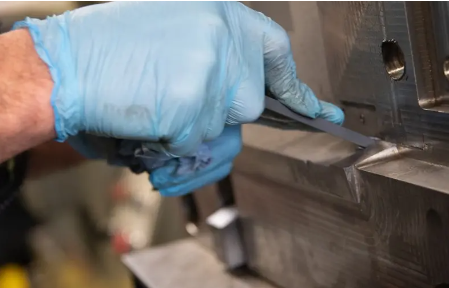 Add My Company
Add My Company

The manufacturing landscape is shifting as more companies choose to bring production back home from overseas.
This trend, known as reshoring, is driven by a desire to improve quality, reduce lead times, and increase supply chain resilience.
Let’s explore the concept of reshoring and why you should consider it in detail.
What is Reshoring?
Reshoring refers to the practice of bringing manufacturing operations that were previously outsourced to overseas locations back to the home country.
This can involve relocating entire manufacturing operations or sourcing components and materials from domestic suppliers instead of those abroad.
There are two main types of reshoring:
Direct reshoring: This involves physically relocating production capacity from overseas back to the UK.
Indirect reshoring: This occurs when a company decides to increase its domestic production capacity instead of investing in overseas facilities.
The end goal is similar: gain more control of your operations while improving quality, accelerating business cycles, and potentially even cutting costs.
The State of Reshoring Right Now
According to a survey of 262 UK manufacturing companies conducted by the Warwick Manufacturing Group (WMG), 70% of respondents have engaged in some form of reshoring activity since 2008.
The study found that:
52% of companies engaged in indirect reshoring, whilst 13% engaged in direct reshoring
Over the last 9 years, there were 594 instances of indirect reshoring and 127 instances of direct reshoring
Looking forward, 70% of respondents said they would consider direct reshoring, whilst 20% would consider indirect reshoring
The WMG study also revealed that companies that engaged in reshoring reported better business performance than those that didn’t reshore.
Reasons for Reshoring
The decision to reshore is driven by a variety of factors, including:
The desire to be closer to customers (38% for direct reshoring, 37% for indirect)
Increased labour costs and transport costs associated with overseas manufacturing
The need to reduce lead times and gain control over the production process
Brexit-related bureaucratic issues and supply chain disruptions
Geopolitical conflicts and the COVID-19 pandemic highlighting supply chain fragility
Essentially, reshoring means strengthening ties to a domestic company with which you can truly collaborate with.
Everything, from design and planning to production and delivery, can become smoother and more responsive.
BEC Group: Supporting the Reshoring Revolution
BEC Group works closely with companies looking to bring their production back from overseas, offering:
Mould tool design and creation
A full tool inspection and repair service for tools brought back to the UK
Re-tooling services to ensure optimal performance and longevity
Plastic injection moulding and overmoulding capabilities
Product design support and design for manufacturing expertise
We’ve already worked with companies reshoring across industries such as marine technology, children’s toys, medical products, and transportation.
Reshore Your Operations With BEC
By reshoring with BEC Group, you can markedly improve quality control, reduce lead times, and strengthen your supply chains.
As Dawn White, Director at EcoEgg, a previous reshoring partner of BEC Group, stated: “BEC demonstrated the benefits of keeping production local and proved that cost isn’t the only factor to consider when selecting a supplier.”
Interested in reshoring? Contact the team at BEC Group to get started today!
For more information on Bringing It Back Home: The Reshoring Revolution talk to BEC Group

